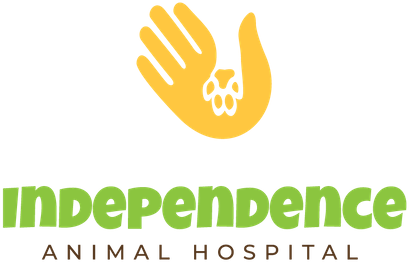Can acupuncture help my pet?
Acupuncture can help animals with various conditions, from orthopedic pain and paralysis to gastrointestinal or behavioral problems, seizures, and renal and liver disease. The intention of treatment is to optimize the flow of vital energy or Qi (pronounced chee) in the body. Qi is a bit like electricity, and manipulating needles in certain areas helps this energy to flow smoothly. The smooth flow of Qi optimizes normal blood flow, reduces pain, and helps the body function at its best. While acupuncture can be amazingly helpful, it is not a magical cure and is not ideal for all situations. For example, fractures usually need to be splinted or surgically repaired—acupuncture may provide additional help with healing and pain control.
Will it hurt?
Many times the patient does not feel the needle, but ideally, there is some mild sensation as the energy or Qi changes in the point being stimulated. In animals, we look for subtle signs like an ear twitch or change in expression. If there is discomfort, it should be for only a split second. Anything more than that, and the needle is removed.
How many treatments are needed?
The short answer is: It depends. Your pet will be examined from Western and Traditional Chinese Veterinary Medical perspectives, and a treatment plan will be developed based on your pet’s unique condition. A realistic goal is to see some significant improvement after three treatments. In some cases, remarkable effects can be seen after one session. The total number of treatments depends upon the condition being treated and your pet’s response to therapy.
Types of Acupuncture
Dry Needling involves inserting thin needles through the skin at acupuncture points along energy pathways in the body. This insertion stimulates nerve endings and creates a piezoelectric current that has different effects depending on the chosen point. Dry needles are usually left in for 10 to 20 minutes and are sometimes further manipulated during treatment. Aquapuncture involves giving small injections of vitamin B-12 or saline in the region of an acupuncture point. The injected fluid stimulates the point. This is a good treatment strategy when needles cannot be kept in place. Electro-acupuncture makes use of battery-generated electrical currents to stimulate points and help move energy along particular pathways in the body. It is helpful in cases of paralysis especially. Other acupuncture techniques include moxibustion which involves using heat from a burning herb, hemoacupuncture, and pneumoacupuncture.
Does acupuncture replace regular veterinary visits?
Will my pet stop his regular medication?
A pet’s Western medications should NOT be discontinued simply because the animal is receiving acupuncture. Any changes should be made only with your veterinarian’s approval; however, dosages may be decreased or discontinued with continued treatments.
My 8-year-old Basset hound mix, Shortie, started receiving Acupuncture therapy about two months ago for chronic neck pain. He has had the first true pain relief in more than five years. He now runs around with our Corgi puppy like he did when he was a pup! Seeing his response, I started getting Acupuncture for my own chronic pain. I no longer wake up every morning hurting. I have gone from curiosity to belief and relief.
Veterinary Referral Form
Please fill out the following form as thoroughly as possible or click the button below to download the form. Please upload any pertinent records relating to your patient’s case. Thank you for choosing Independence Animal Hospital. We look forward to working with you!
